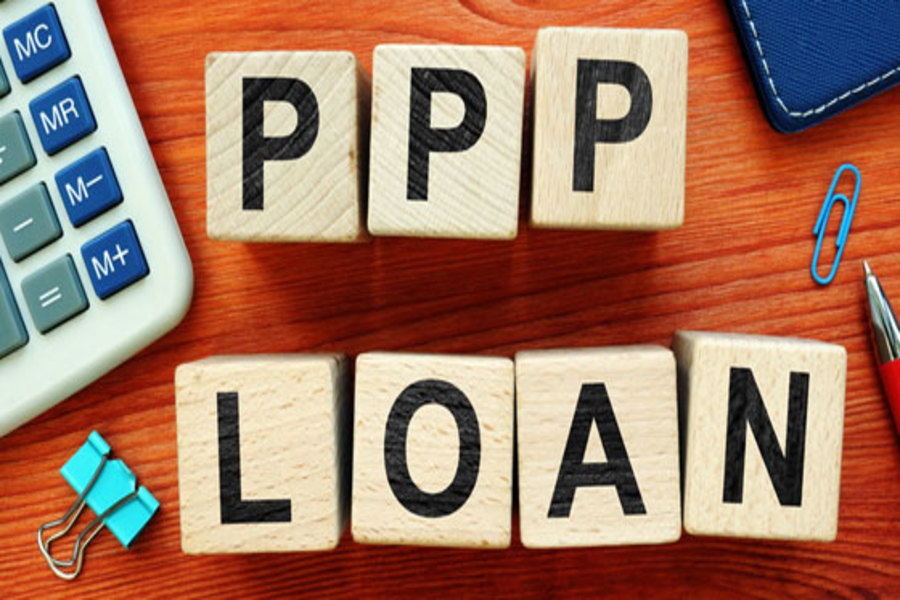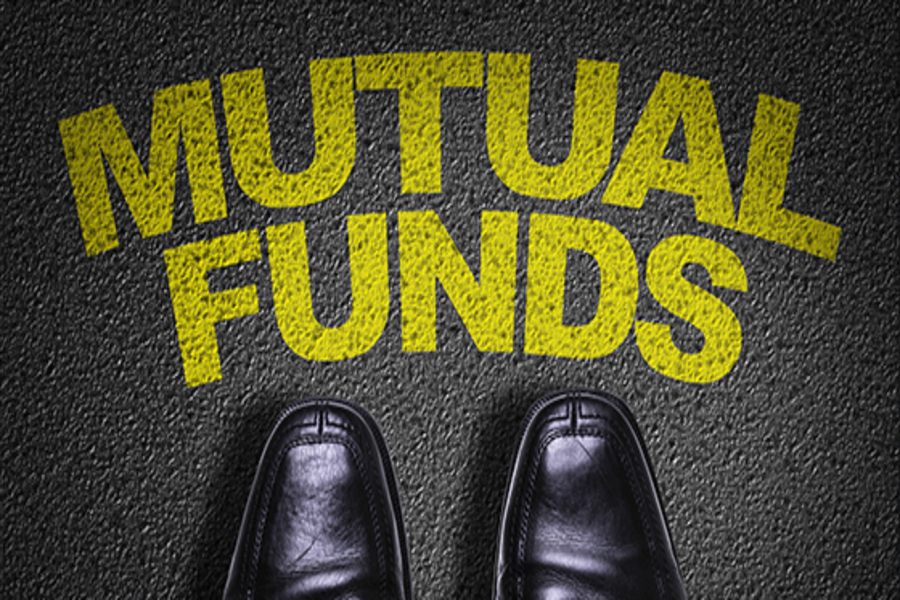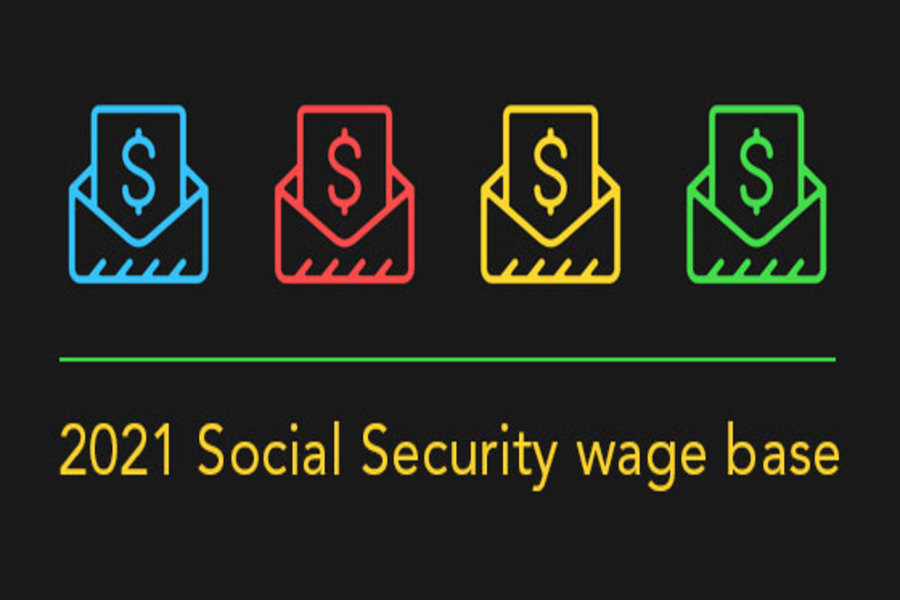When a couple is going through a divorce, taxes are probably not foremost in their minds. But without proper planning and advice, some people find divorce to be an even more taxing experience. Several tax concerns need to be addressed to ensure that taxes are kept to a minimum and that important tax-related decisions are properly made. Here are four tax issues divorcing couples should understand if they're in the midst of a divorce. Issue 1: Alimony or support payments For alimony under divorce or separation agreements that are executed after 2018, there’s no deduction for alimony and separation support payments for the spouse making them. And the alimony payments aren’t included in the gross income of the spouse receiving them. (The rules are different for divorce...

(This is Blog Post #929)...
(This is Blog Post #928)...
Ghost employees and other payroll scams are trouble for employers. They may be just as fictional as the paranormal activities in your favorite scary book or movie, but if you have ghost employees on your payroll, you have fraud. And if you have fraud, you have potentially significant financial losses. Anatomy of a scheme Ghost employee schemes usually are perpetrated by employees who have easy access to payroll records. If your company’s internal controls are loose enough to be exploited, a greedy or disgruntled staffer could invent an employee, put this “person” on the payroll and direct deposit paychecks to a bank account in the ghost’s name. It may seem like it would be easier to hide ghost employees in large companies. In fact, small businesses, where a...
Timing of Non-Deductibility of Forgiven PPP Loan-Funded Expenditures In guidance issued on 11/18/2020, the IRS has made it clear that taxpayers with a "reasonable expectation" that their Paycheck Protection Program (PPP) loan will be forgiven may not deduct expenditures that were paid with the proceeds of those loans, even if the actual forgiveness has not yet been granted prior to the end of the taxable year (Revenue Ruling 2020-27). In this Revenue Ruling, the IRS states that, because the calculation of forgiveness is based on eligible expenses that were paid with PPP funds, the forgiveness of the loan amounts used for these eligible expenses is "reasonably expected to occur", and therefore, under §265, claiming tax deductions for such eligible expenses would be not be appropriate. In a...
If you recently launched a business, you may want to set up a tax-favored retirement plan for yourself and your employees. There are several types of qualified plans that are eligible for these tax advantages: A current deduction from income to the employer for contributions to the plan, Tax-free buildup of the value of plan investments, and The deferral of income (augmented by investment earnings) to employees until funds are distributed. There are two basic types of plans. Defined benefit pension plans A defined benefit plan provides for a fixed benefit in retirement, based generally upon years of service and compensation. While defined benefit plans generally pay benefits in the form of an annuity (for example, over the life of the participant, or joint lives of the participant...
The California Legislature passed, and the governor signed, Senate Bill 1447 (click here for FTB Bill Analysis) into law creating a new small business hiring credit (SBHC) for small businesses impacted by economic disturbances in 2020. The Small Business Hiring Credit is also referred to as the “Main Street Hiring Credit”. Overview Taxpayers can use the credit against income taxes (personal income tax, corporation franchise or income taxes), or can make an irrevocable election to apply the credit against sales and use taxes. The credit is equal to $1,000 for each net increase in "Qualified Employees" (as outlined below), as measured in monthly full-time employee equivalents (FTEs). The total amount of credit for each employer cannot exceed $100,000. Taxpayers must get a tentative credit reservation from the California...
If you invest in mutual funds, be aware of some potential mutual fund buy-sell tax pitfalls that can surprise the unwary. Surprise sales You may already have made taxable “sales” of part of your mutual fund investment without knowing it. One way this can happen is if your mutual fund allows you to write checks against your fund investment. Every time you write a check against your mutual fund account, you’ve made a partial sale of your interest in the fund. Thus, except for funds such as money market funds, for which share value remains constant, you may have taxable gain (or a deductible loss) when you write a check. And each such sale is a separate transaction that must be reported on your tax return. Here’s another way...
Forensic accountants are engaged for a wide variety of assignments, among them investigating fraud, auditing internal controls and quantifying damages associated with legal disputes. All of these require attention to detail and a diverse set of skills including mathematical, technological, legal and investigative. But the accounting landscape and client needs are constantly changing. Here’s how the profession has adapted and digitized 21st century forensic accounting, and how it's applying the latest technological solutions. Embracing the digital revolution Technology has radically changed how forensic accountants do their jobs. Businesses used to be awash in paper. Today, most companies run on a digital backbone and discourage employees from printing to save money and reduce environmental damage. Consequently, forensic accountants must be able to gather, analyze and make sense of...
If your small business is planning for payroll next year, be aware that the 2021 Social Security wage base is increasing. The Social Security Administration recently announced that the maximum earnings subject to Social Security tax will increase from $137,700 in 2020 to $142,800 in 2021. For 2021, the FICA tax rate for both employers and employees is 7.65% (6.2% for Social Security and 1.45% for Medicare). For 2021, the Social Security tax rate is 6.2% each for the employer and employee (12.4% total) on the first $142,800 of employee wages. The tax rate for Medicare is 1.45% each for the employee and employer (2.9% total). There’s no wage base limit for Medicare tax so all covered wages are subject to Medicare tax. In addition to withholding Medicare...
- 1
- 2
- 3
- 4
- 5
- 6
- 7
- 8
- 9
- 10
- 11
- 12
- 13
- 14
- 15
- 16
- 17
- 18
- 19
- 20
- 21
- 22
- 23
- 24
- 25
- 26
- 27
- 28
- 29
- 30
- 31
- 32
- 33
- 34
- 35
- 36
- 37
- 38
- 39
- 40
- 41
- 42
- 43
- 44
- 45
- 46
- 47
- 48
- 49
- 50
- 51
- 52
- 53
- 54
- 55
- 56
- 57
- 58
- 59
- 60
- 61
- 62
- 63
- 64
- 65
- 66
- 67
- 68
- 69
- 70
- 71
- 72
- 73
- 74
- 75
- 76
- 77
- 78
- 79
- 80
- 81
- 82
- 83
- 84
- 85
- 86
- 87
- 88
- 89
- 90
- 91
- 92
- 93
- 94
- 95
- 96
- 97
- 98
- 99
- 100
- 101
- 102
- 103
- 104
- 105
- 106
- 107
- 108
- 109
- 110
- 111
- 112
- 113
- 114
- 115
- 116
- 117
- 118
- 119
- 120
- 121
- 122
- 123
- 124
- 125
- 126
- 127
- 128
- 129
- 130
- 131
- 132
- 133
- 134
- 135
- 136
- 137
- 138
- 139
- 140
- 141
- 142
- 143
- 144
- 145
- 146
- 147
- 148
- 149
- 150
- 151











